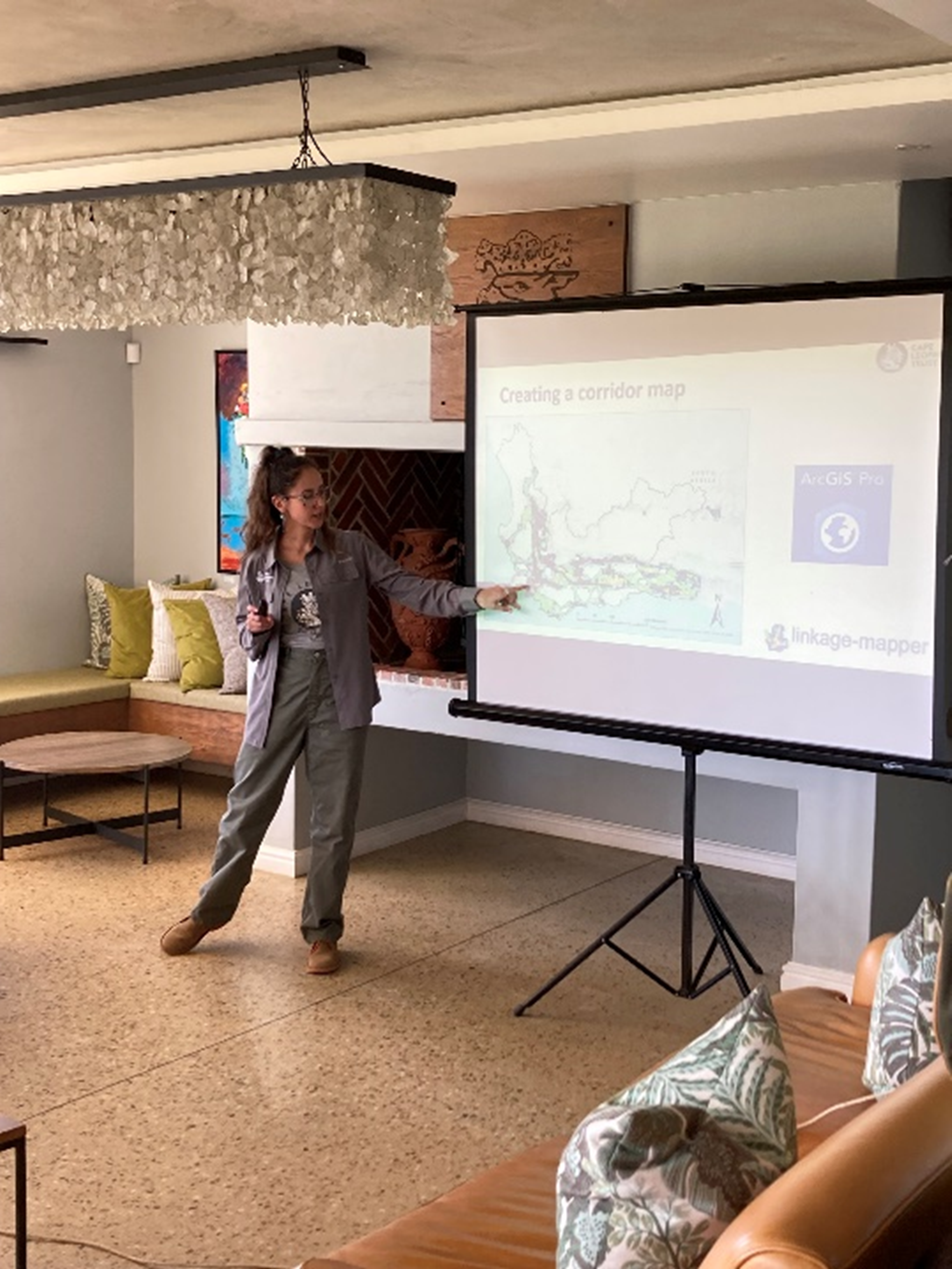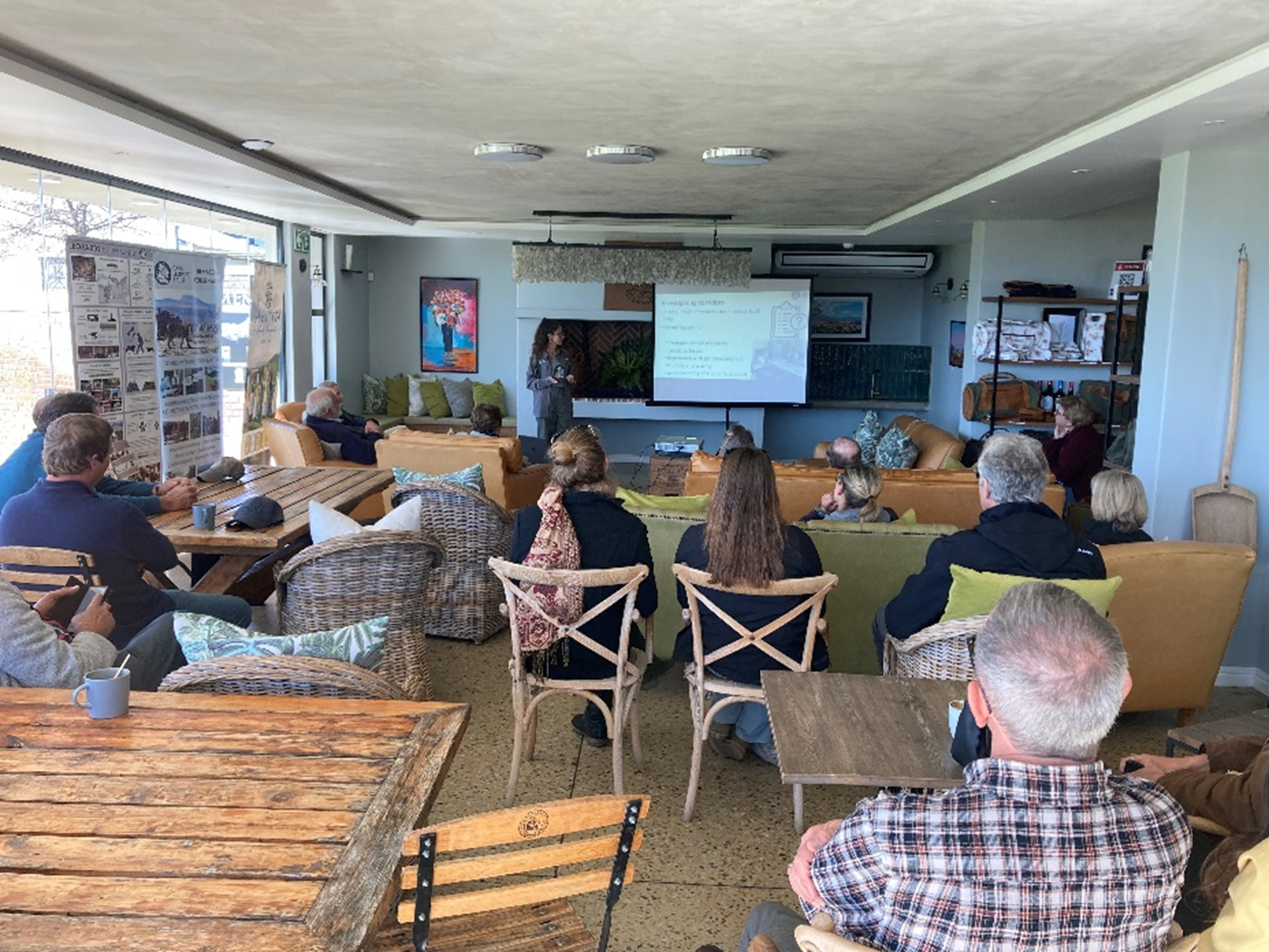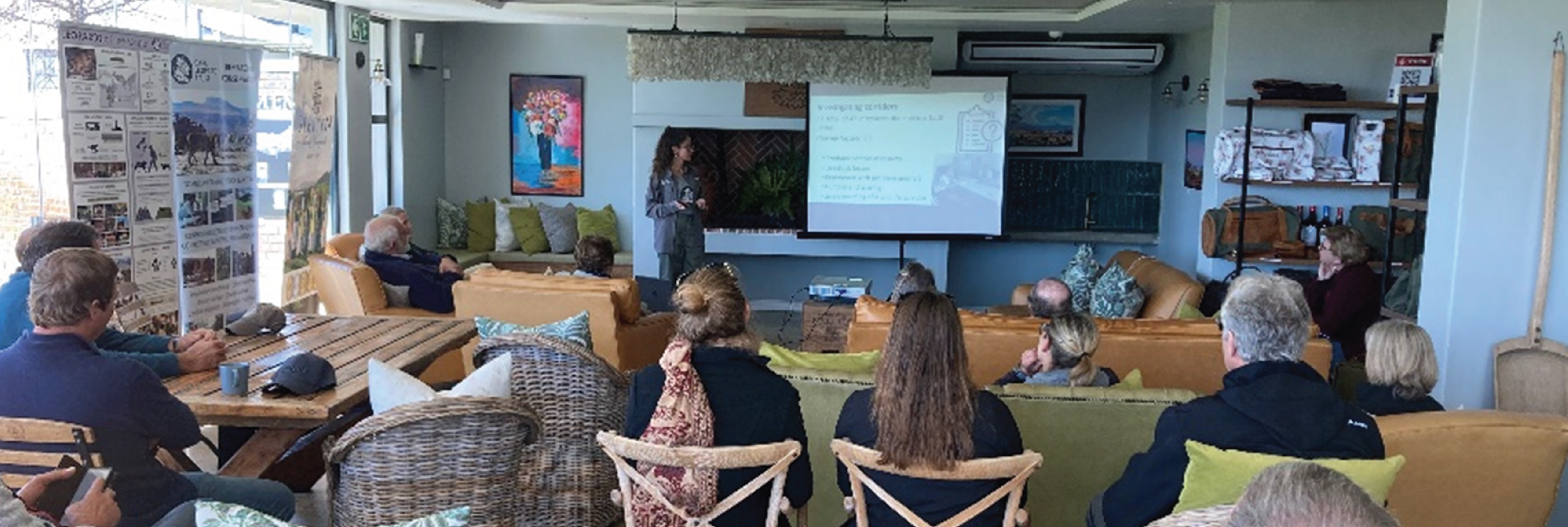Master’s student Jamie-Lee Carle, under the supervision of Professor Alison Leslie and Dr Katy Williams, and in collaboration with the Cape Leopard Trust, conducted a study on predicted leopard movement corridors in the Western Cape using a socio-ecological approach. The research involved camera trap surveys to verify whether leopards use these predicted corridors. Additionally, interviews with landowners were carried out to gain insights into local attitudes towards leopards and to identify potential threats to their survival in the area. Jamie-Lee recently presented her findings to the relevant landowners and stakeholders at her study sites. The results of her study not only confirmed that leopards are indeed using the predicted corridors but also highlighted significant threats, such as snaring and lethal predator control measures, which endanger leopards and other wildlife in these areas.
This project sought to establish a foundation for landowners and stakeholders to connect and engage in meaningful dialogue, addressing the challenges faced by landowners and exploring how they can be better supported by stakeholders and organisations like the Cape Leopard Trust, especially in areas of human-wildlife conflict. The feedback presentations to landowners serve as a crucial step in building trust and fostering meaningful relationships for future initiatives. Ultimately, these corridors must offer safe passage for leopards in a fragmented landscape, while simultaneously supporting the livelihoods of landowners.
Jamie-Lee will also be presenting her findings at the Southern African Wildlife Management Association conference in Namibia in October, courtesy of a travel grant awarded by the post graduate office of Stellenbosch University.

Photo 1. MSc student Jamie-Lee Carle showing locations of predicted leopard movement corridors across the Western Cape, South Africa

Photo 2. MSc student Jamie-Lee Carle presenting interview findings to the landowners she interviewed in Villiersdorp, Western Cape, South Africa.

